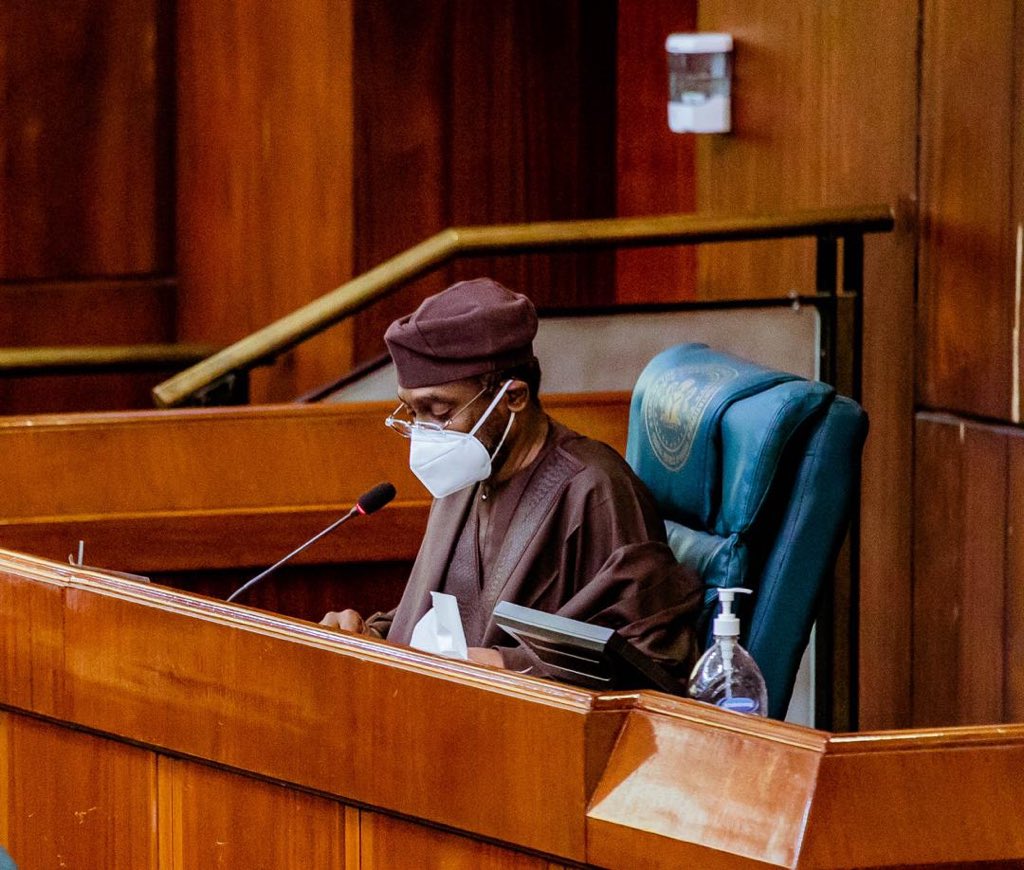Politics
Dino Melaye sues Speaker, Femi Gbajabiamila over infectious diseases bill

Former senator representing Kogi Central, Dino Melaye, has filed a lawsuit at a Federal High Court in Abuja against the Speaker of the House of Representatives, Femi Gbajabiamila; the Attorney General of the Federation, Abubakar Malami; and the Inspector General of Police, Mohammed Adamu, among others, over a controversial bill.
In case you missed it; Nigeria’s Proposed Infectious Disease Act: Plagarised And Dangerous. Sources tell NewsWireNGR that members lower House of Assembly are planning to have the bill passed Tuesday, (Tomorrow) during plenary session.
The bill titled ‘Control of Infectious Diseases Bill 2020’, which was sponsored by Gbajabiamila and his colleagues, Pascal Obi and Tanko Sununu, seeks to empower the Federal Government to convert any property in the country, including private properties, to isolation centres.
NewsWireNGR had EXCLUSIVELY filed a story, breaking down how the sponsors of the bill led by the Speaker plagiarised a similar law on disease control by Singapore.
The Story by NewsWireNGR led to a nationwide uproar and trends across social media condemning the outright powers the bill seeks to give to the DG of the NCDC.
Melaye, in a tweet on Monday, stated that he had taken legal action against Gbajabiamila and others.
He said, “I have just filed a court action against the Speaker and House of Representatives on the wicked bill initiated by Hon Femi Gbajabiamila this morning at the Federal High Court Abuja. We shall overcome.”
The document with Suit No. FHC/ABJ/CS/463/2020, which was shared by Melaye’s Twitter account, listed the defendants as Gbajabiamila; Malami; Adamu; the Clerk of the National Assembly, Mohammed Sani-Omolori; the Clerk of the House of Representatives, Patrick Giwa.
The notice was filed “in the matter of an application by Senator Dino Melaye for an order for the enforcement of his fundamental rights to the dignity of his person, personal liberty, right to private and family life, right to freedom of movement and right to own immovable property in Nigeria.”
“notice of application for an order enforcing fundamental rights (is) brought pursuant to Sections 34 (1), 35 37, 38, 40, 41 (1), 44, and 46 (1) of the 1999 Constitution of the Federal Republic of Nigeria, as altered; (and) Articles 4, 6, 7, 10, 11, 12 and 14 of the African Charter on Human and People’s Rights.” the document reads.
To continue telling under-reported stories, we need your support for the work we do, by donating to https://paystack.com/pay/newswirengr






